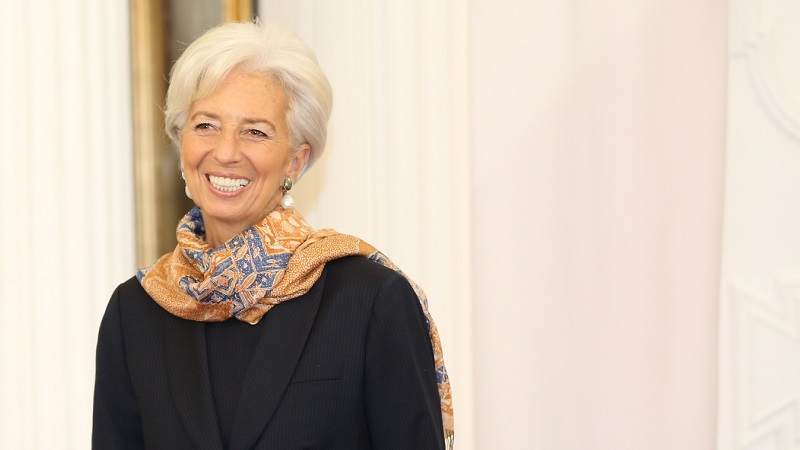The European Central Bank (ECB) is slowing its monthly bond buying programme put in place to deal with the economic fallout from the global pandemic, but asset managers are keen to point out the move does not constitute tapering.
The ECB said on Thursday it would move to a “moderately lower pace” of net asset purchases under the pandemic emergency purchase programme (PEPP) than in the previous two quarters.
The €1.85trn (£1.6trn) PEPP has been running since March at a level of €80bn a month and is set to continue until the coronavirus crisis phase is over.
“Based on a joint assessment of financing conditions and the inflation outlook, the Governing Council judges that favourable financing conditions can be maintained with a moderately lower pace of net asset purchases under the PEPP than in the previous two quarters,” the ECB said in a statement.
It comes on the back of an optimistic outlook for Europe with the ECB noting the region’s economy rebounded by 2.2% in Q2, which was more than expected, and it is on track for strong growth in the third quarter. GDP outlook has been upgraded to 5% in 2021 and 4.6% in 2022. Meanwhile, the ECB forecasts inflation to be at 1.5% on core and headline inflation in 2023, which is still far below its 2% target.
ECB president Christine Lagarde (pictured) was quick to clarify that the move was not tapering, but a recalibration. She said, in a comment reminiscent of Margaret Thatcher, that “the lady isn’t tapering” during the press conference.
Elsewhere the bank left its other monetary policy instruments unchanged. The rate on the main refinancing operations and the interest rates on the marginal lending facility and the deposit facility staying at 0.00%, 0.25% and -0.50% respectively.
Its net purchases under the asset purchase programme (APP) will continue at a monthly pace of €20bn.
“The Governing Council continues to expect monthly net asset purchases under the APP to run for as long as necessary to reinforce the accommodative impact of its policy rates, and to end shortly before it starts raising the key ECB interest rates,” the ECB said.
Not a move to taper
Blackrock Investment Institute head of macro research Elga Bartsch says slowing the pace of its PEPP was not a tapering decision, but rather an operational decision given easier financing conditions right now.
“ECB asset purchases look here to stay as the new policy framework paves the way for looser for longer monetary policy in the euro area,” she adds.
“The ECB’s priority should be to focus on bumping up medium-term inflation, since staff projections peg it well below the new 2% target. When PEPP ends, a faster pace of APP could help push inflation higher – although fiscal support might ultimately also be needed.”
Blackrock recently moved overweight European equities based on the broadening recovery with the vaccination rollout accelerating.
See also: Blackrock moves overweight European equities despite industry’s downbeat economic sentiment
Similarly, HSBC Asset Management chief global strategist Joe Little says: “In our view, the decision to reduce asset purchases is not tapering, but a reversal of March’s emergency uplift in purchases – which itself followed a market episode of rising bond yields. It means that in Q4, ECB asset purchases will look closer to the levels they were in Q1 this year.”
All eyes on December’s meeting
The PEPP, which accounts for up to 80% of current ECB purchases, expires next March and Little thinks the bigger decision on asset purchases comes at the December ECB meeting.
“The new symmetric inflation target, subdued underlying inflation trends, and pandemic risks suggests a dovish tilt to policy for the foreseeable future,” he says. “This is likely to include ongoing purchases under the APP, and a possible extension of the PEPP deeper into 2022.”
He adds: “Overall, with the ECB in no rush to significantly tighten policy, the recovery in the eurozone is set to continue amid high levels of vaccination, substantial savings piles, and the release of EU recovery funds.
“We expect GDP to recover to its pre-crisis level by year-end, with very little if any economic scarring in the longer-term.”
Similarly to Blackrock, Little says HSBC AM is positive on Europe’s equity markets which benefit from exposure to cyclical and value factors, “although strong year-to-date performance may cap the upside potential in the near-term”.
Kempen Capital Management senior investment strategist Joost van Leenders also thinks all eyes will be on December’s meeting, but the big question for now is what will happen when the PEPP is exhausted.
“To prevent a sudden step down in the ECB’s asset purchases, APP monthly purchases will be increased,” he adds. “The thorny issue of the limitations of APP, such as buying according to the ECB capital key and maximum issuer limits, must be addressed at the December ECB meeting.”







